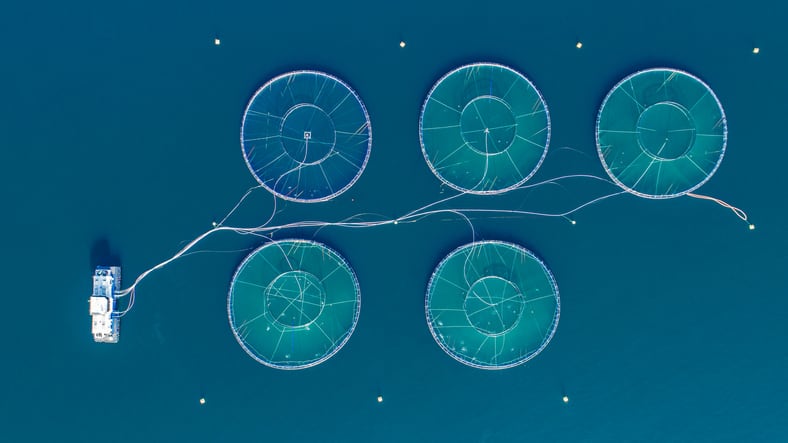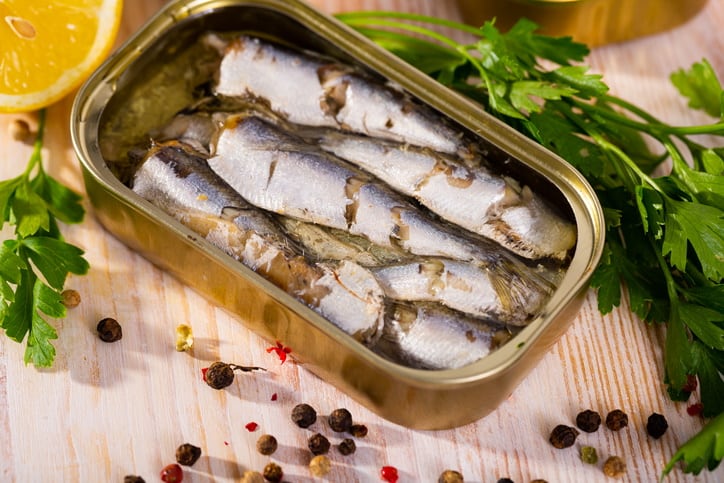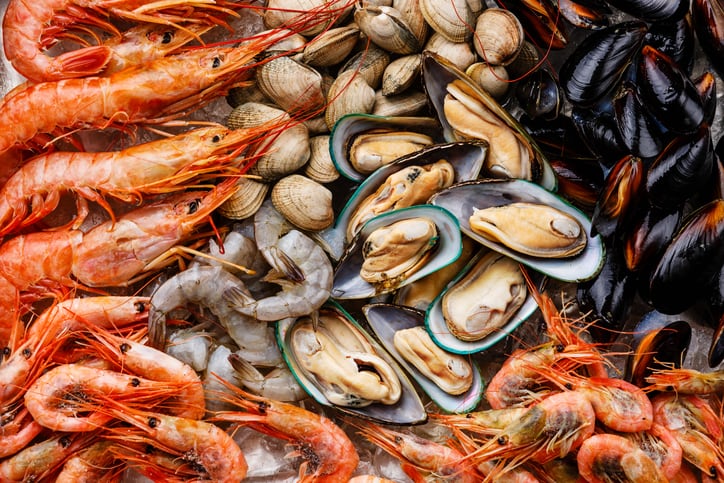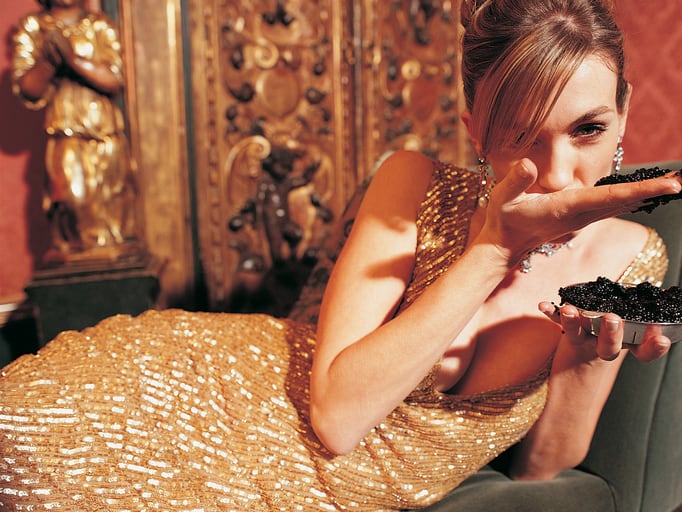EIT Food, which creates and scales-up agri-food start-ups to deliver ‘healthier and more sustainable’ food innovations, ingredients and businesses, launched a sustainable aquaculture competition back in December 2020 in order to strengthen its portfolio in this area.
It says the aquaculture industry is confronted with multiple challenges, from marine biodiversity loss to water pollution to unsustainable commercial fish feeds. Moreover, while aquaculture products overall (including imports) represent 25% of EU consumption of seafood, EU aquaculture products represent only 10% of EU consumption.
“This sector can make an important contribution to the fight against climate change, the reduction of pollution and the protection of ecosystems,” it said. “It can also be part of a more circular management of resources. Hence, a strategic and long-term approach for the sustainable growth of EU aquaculture is therefore more relevant today than ever.”
Meanwhile the EU Farm to Fork Strategy, which sits at the heart of the EU Green Deal, underlines the potential of farmed seafood as a source of protein for food and feed with a low-carbon footprint, according to EIT Food, and has an important role to play in helping to build a sustainable food system.
Mercedes Groba, Innovation Programme Manager at EIT Food, added: “I truly believe that aquaculture is a critical part of the solution.”
EIT Food has chosen seven winning projects that it hopes will address key problem areas. These include reducing food loss and waste by extending the shelf life of seafood products whilst increasing product safety and quality; enhancing product quality, fish welfare and reducing likelihood of disease; producing high-quality and accessible sustainable feeds; preserving marine biodiversity and ecosystems; transforming aquaculture into a circular form of food production; increasing the resilience and competitiveness of the EU aquaculture sector; and addressing skills gaps.
Sustainable Seafood Processing
The first project Sustainable Seafood Processing (SuSeaPro) is developing novel processing technologies that extend the shelf-life of seafood products, that do not rely on additives or heat treatment, to reduce food loss and waste from farm-to-fork. The project will also improve food safety and enhance consumer perception by reducing the microbial growth of harmful pathogens.
Mark Chryssolouris, CEO SuSea, explained: “The aim of SuSeaPro is to scale up a processing technology which improves the quality and safety of food. This way we can improve public health by reducing the prevalence of harmful pathogens such as listeria and reduce food waste at the same time.”
Creating a sustainable tuna industry
German start-up Next Tuna is hoping to create what it claims is the first sustainable European source of tuna by reproducing Atlantic Bluefin Tuna in a land-based, eco-friendly recirculating aquaculture system. The project, it says, will contribute to the preservation of Atlantic Bluefin Tuna and more widely, protect the wildlife of our oceans and seas.
Dr. Paul-Daniel Sindilariu, Co-Founder of Next Tuna, said: “We want to take the great progress made in Atlantic Bluefin Tuna reproduction research to the final step of commercialisation. We will revive the European tuna industry and provide healthy, sustainably produced Atlantic Bluefin Tuna to European consumers.”
Circular economy feed ingredient for farmed salmon
Sweden-based Cewatech claims to be pioneering what it describes as a ground-breaking feed ingredient for farmed salmon that contains protein from recycled wastewater in the starch industry. It claims the project will support the natural defence mechanisms of salmon by supporting their basic biological functions, while preventing disease. The fish feed will be made from a sustainable fungi-based protein to replace the use of fishmeal and soybean meal. EIT Food will assist and support Cewatech in bringing its patented product, which it intends to replace soy and fishmeal used in fish feed, to its industrialization phase.
Kurt Bjørkvik, CTO of Cewatech, said: “We believe our fish feed will be beneficial for generations of fish farmers to come and produce high-quality fish for consumers worldwide.”
An eco-friendly system for fish health management
The BREEZE project, under development by the Aqua Pharma Group and Pulcea, based at the Norwegian University of Science and Technology and University of Stirling in the UK respectively, is hoping to enable the successful scaling of sustainably managed fish farms, to meet the growing demand for healthy proteins. It aims to bring to market a residue-free prevention and control system for sea lice management, to contribute to increased resistance to diseases, while increasing awareness of animal welfare and minimising environmental impact.
Hanne Mertens, Chief Operating Officer at Aqua Pharma Group, said: “We have a great responsibility to increase transparency in aquaculture and to reassure consumers that the fish we eat is sustainably farmed according to the highest welfare standards.”
An AI platform for the EU aquaculture market
An AI-based collaborative platform called AGAPE (Aquacultural Global AI Platform for Europe’s Skills Passport) addresses the EU aquaculture market, academia, consumers and research ecosystems and is bringing an innovative model of interaction between members of the EU aquaculture market. It says it will broaden community on skills, capabilities and competencies, globally and in real time.
Milena Marzano PhD, Managing Director at Milcoop said: “AGAPE represents an opportunity to contribute to a real transition towards a new, sustainable, human-centred aquaculture ecosystem.”
A sustainable shellfish farming solution
Delta Futuro’s shellfish juvenile production model is a sustainable shellfish farming system that aims to guarantee the wellbeing of shellfish juveniles and ensure food security for future consumers. The project is looking to respond to the lack of high-quality manila clam seed by scaling up hatcheries and improving seed availability for farmers.
Gianluigi Lago CEO, Delta Futuro, said: “Delta Futuro’s innovative productive model aims to make European clam farming more sustainable and provide EU consumers with healthier proteins.”
Raising farmed salmon welfare standards
Scottish company FishFrom, in collaboration with Italian academics at the University of Trento, University of Bologna and the Trentino Innovation Hub, is aiming to utilise world-leading technology to minimise the environmental impact and maximise fish welfare of farmed salmon. By growing Atlantic salmon in recirculating aquaculture systems (RAS) throughout the EU, the project will aim to expand and commercialise its technology that improves animal welfare and product quality and accommodates many fish species across multiple geographical locations.
Andrew Robertson, Director, FishFrom Ltd, said: "Commercial businesses do not always get the chance to meet and collaborate with academia but through the EIT Food network we’ve found the perfect partners to address one of the formidable challenges in growing fish in RAS. To have then been awarded funding to develop, commercialise and exploit this technology is absolutely fantastic."





